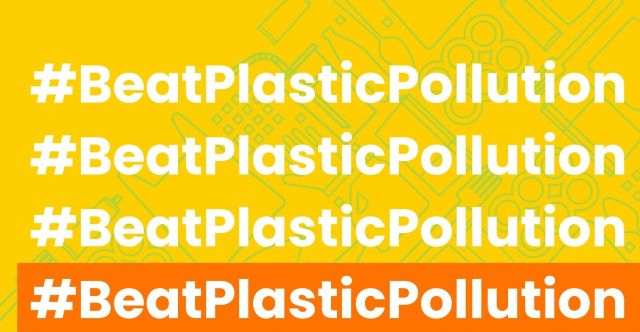
Did you know that every year, the world produces over 400 million tons of plastic, and one-third of it is used only once? Shockingly, the equivalent of over 2000 garbage trucks full of plastic is dumped into our oceans, rivers, and lakes every day.
World Environment Day in 2023 serves as a reminder that ending plastic pollution is a responsibility that falls on everyone. While consumers can make a difference, companies, investors, policymakers, and governments must take real action.
Fortunately, a promising first step was taken last year when the global community started negotiating a legally binding agreement to end plastic pollution.
According to a recent report by the UN Environment Program, we can significantly reduce plastic pollution by 80 percent by 2040 if we start now, by reusing, recycling, reorienting, and diversifying away from plastics.
Last fall, the 13th annual Guide to Green Colleges was released by The Princeton Review®, which is an online resource available for free to college applicants seeking institutions with strong commitments to the environment through their campus policies, programs, and practices.
It features a list of 455 colleges and ranks the top 50 green colleges. The Princeton Review selected the schools based on surveys of administrators and students at 713 colleges during the 2021-22 academic year, analyzing more than 25 data points to determine their inclusion in the guide and ranking list.
The College of the Atlantic (ME) is ranked #1 on the Top 50 Green Colleges list, a recognition it has received for seven consecutive years. The college has many green distinctions, including being the first carbon-neutral college in the US in 2007, and committing to becoming fossil fuel-free by 2030. More details on the selection process and ranking can be found in the guide.
For the second year in a row, Dickinson College in Pennsylvania has secured the #2 spot on The Princeton Review’s ranking list of Top 50 Green Colleges. The State University of New York College of Environmental Science and Forestry has risen from #9 to #3 on this year’s list. The Princeton Review’s release of the guide coincided with Campus Sustainability Month, an international celebration of sustainability in higher education.
The guide aims to help students find colleges that are committed to the environment and green practices. According to The Princeton Review’s 2022 College Hopes & Worries Survey, 77% of the 10,400 participants said information about a college’s environmental commitment would affect their decision to attend.
The top 25 schools on the list include College of the Atlantic, Williams College, and Loyola Marymount University, among others. The complete list of the top 50 green colleges is available on The Princeton Review’s website.
Each profile includes information on the college’s renewable energy usage, recycling and conservation programs, and environmental academic offerings.
The colleges were selected based on a survey of administrators at 713 colleges, and each school was given a Green Rating score on a scale of 60 to 99. Only schools with a score of 80 or higher were included in the guide.
The top 50 ranking list was tallied based on data from surveys of both administrators and students, incorporating factors such as student assessments of sustainability issues and campus conservation efforts. Thirty-one of the schools received a perfect score of 99 and were named to The Princeton Review’s Green Honor Roll.
Coming up: #WorldEnvironmentDay on June 5!
Are you ready to #BeatPlasticPollution?
See how you can get involved: https://t.co/w8qkCBC14J pic.twitter.com/VO5GXeJDHz
— UN Environment Programme (@UNEP) June 2, 2023
The U.S. Army Corps of Engineers has been tasked with…
Brown and Caldwell, a leading environmental engineering and construction firm,…
Humboldt State University, one of four campuses within the California…